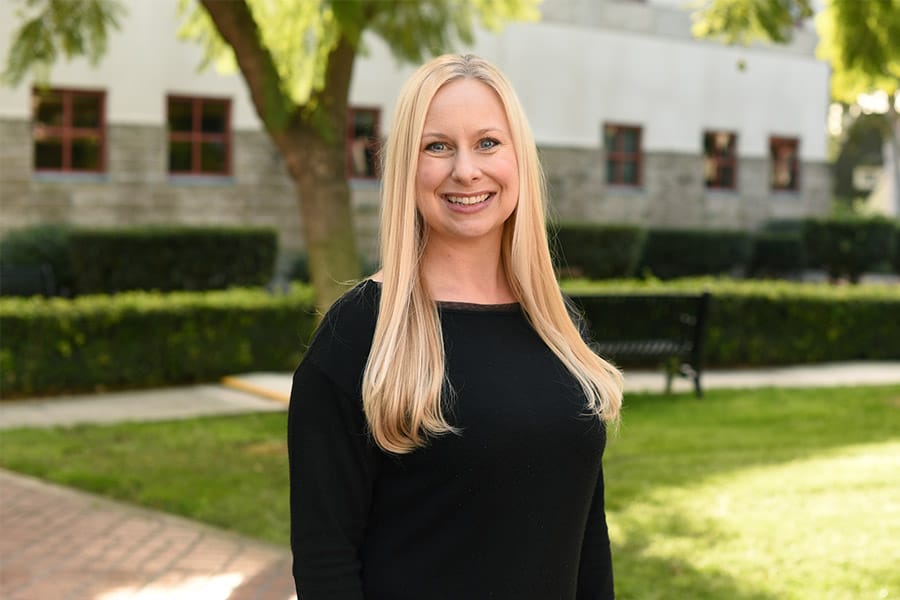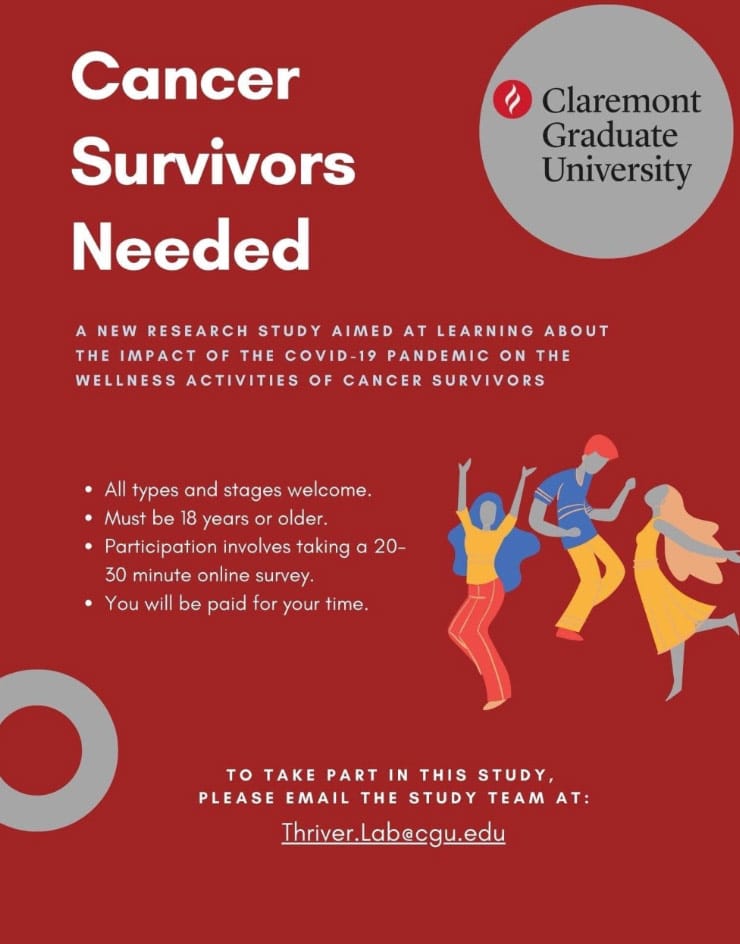Jessica DeHart Supports Cancer Survivors and Mama Scientists

Jessica DeHart is a proud multihyphenate with a lot to celebrate. After becoming an associate professor at CGU, the self-described “mama scientist” with two kids recently gained official 501c3 status for her nonprofit LYTE (Living Your Truth Empowered) and won a City of Hope Healthy Living Community grant, gaining funding to provide cancer survivors with health coaching and wellness navigation once their treatment is done.
Along with her cancer survivorship work, DeHart wants to make sure that women in STEM, academia, and the C-suite know that through hard work and prioritization, they can excel in both their careers and family life. DeHart took time from her busy schedule to discuss her promotion, her passion for cancer survivor advocacy, and her experiences as a #mama-scientist.
What does it mean to you to now be an associate professor?
Becoming an associate professor is such a big step in academia and research. The professors in SCGH were the public health professors at USC while I was an undergrad! It is extremely special that now they are my colleagues. As a molecular cancer epidemiologist and women’s health scientist, I have spent a lot of my career in labs, clinics, and behind a desk crunching data.
However, I knew I needed to do more than just research, and the place where I could do more just so happened to be in Claremont, the town where I grew up. A major cornerstone of CGU is transdisciplinary research, which is what I was doing, and a cornerstone of SCGH is making the research relevant in the community. What a perfect match. The day they said yes to my joining the team was transformative. I knew that I now had the opportunity to take my research to the next level. Being promoted to associate professor makes that even more possible.

Why is it so important to provide care for cancer survivors after their treatment, and how does your nonprofit LYTE move from helping patients survive cancer to thriving after treatment?
The number of women diagnosed with breast cancer continues to rise each year; however, due to treatments becoming more effective, the number of breast cancer survivors is increasing exponentially—3.8 million currently and 5 million estimated by 2030. But when the celebratory bells fall silent and the confetti is swept up, these 3.8 million women face their “new normal.” The physical and psychological collateral damage of successful cancer treatment is often overwhelming and the rally cry against the acceptance of a “new normal” is growing louder.
This was apparent during my conversations with breast cancer survivors while teaching last summer at the National Breast Cancer Coalition Project LEAD Institute. And even more every day with my mom. Five years ago, when my mom was diagnosed, I became a witness to the breast cancer experience outside of the clinic walls, and every day since, I’ve become more and more aware of the critical and often unmet needs during survivorship.
Comprehensive cancer centers promise ongoing supportive care but frequently fall short due to focusing resources on groundbreaking treatment. Community-based cancer clinics, often caring for the most underserved, have little to no resources for survivorship care. The dramatic shift from weekly/daily medical appointments to deafening silence is paralyzing to many women. This silence leads to fear, anxiety, and depression, manifesting in physical health decline, avoidance of preventive care, and, in the worst case, cancer recurrence and progression.
Through LYTE, our goal is to empower breast cancer survivors to illuminate their path forward. We plan to do this for the growing and diverse breast cancer survivor community by providing community-based, locally and culturally tailored charters run by breast cancer advocates and community members who are nationally certified by LYTE as community health and wellness coaches.
Can you tell me a bit about your CGU student team?
I have an amazing team of students and alums who have been helping with LYTE from the very beginning. Jennifer Langenwalter is an alumna of our Master of Public Health (MPH) program and the chief instruction officer. Vir-Iaesta Vergel De Dios is a current doctor of public health (DrPH) student and the chief operating officer. LYTE provides real-world experience to them as future public health practitioners and breast cancer researchers. CGU’s DrPH program in leadership and management requires practicum experience and a culminating applied dissertation project.
Currently, eight students have taken on leadership roles within LYTE for their practicums and dissertations. Our PhD students design research objectives and methodologies to evaluate LYTE programming and are integral to moving the cancer survivorship field forward. Additionally, LYTE is collaborating with the Drucker School of Management Marketing Association to maximize awareness of LYTE and recruit for LYTE’s programming.
What are some of the difficulties and joys of being a scientist and a mom, and how can academia help to make it easier to be both?
#mama-scientist-life is what I often put after sharing my crazy stories of everyday life as a mom and scientist.
Women are told at a young age that we can do anything and be anything, yet when trying to be a present mom and scientist (I can only speak to my own field), we are immediately told it’s not possible. Maybe not directly, but through side comments or microaggressions, such as, “I thought you wanted to advance your career?” and meetings scheduled or classes taught in the evening right at kids’ bedtimes. A mama-scientist life is constantly having to manage these nuances through compromise. The bottom line is women should be able to choose whatever life they want with absolutely no judgment. For me, I find pure joy every day in doing both.
I think the biggest difficulty is remembering to still take care of yourself and to really be aware of burnout. It’s easy for mama scientists to feel like they must do more work than others to prove they belong in science while baking more cakes than anyone else to prove they can be present moms as well. Letting go of constant perfection is the key to avoiding burnout. I do my best to be transparent and a good role model in this area for my students.
I am very lucky to have a dean at CGU who gets it. Unfortunately, this is not the case most of the time. During the height of the pandemic, my husband and I were managing our full-time workloads while teaching two young boys at home. I honestly thought my career might be over, but the flexibility I received and just the fact that I knew my dean saw me made a huge difference. Academia as a whole could use more flexibility, transparent communication, and grace to help to make it easier to be a mother and professor.
Women’s rights have come a long way, but there are still critical areas, especially in science, that need a lot more work.